
Project "Converting tax management models and methods for business households when eliminating lump-sum tax", aiming at comprehensive modernization, creating an equal business environment between business households and enterprises
Towards a modern and equitable tax management model
The Ministry of Finance has just issued Decision 3389/QD-BTC approving the Project "Converting tax management models and methods for business households when eliminating lump-sum tax" - one of the key steps of the tax management reform program for the 2025-2030 period.
The goal is to comprehensively modernize tax administration, eliminate lump-sum taxes, establish an equal business environment between business households and enterprises, while promoting digital transformation and reducing compliance costs for taxpayers.
From January 1, 2026, all business households will switch to self-declaration and self-payment of taxes. Legal documents related to tax management of business households will be supplemented, amended or newly issued to ensure synchronous implementation.
The project sets out specific goals including: Reducing at least 30% of administrative procedure processing time and 30% of legal compliance costs. 100% of business households are informed, guided and supported in the process of converting from lump-sum tax to declaration. 100% of business households subject to applying electronic invoices from cash registers according to Decree 70/ND-CP of the Government must register and use them in accordance with regulations. 100% of business households carry out tax procedures electronically in a convenient and easy manner.
The above goals reflect the spirit of Resolution 68-NQ/TW of the Central Committee on private economic development, aiming to reduce administrative burdens and create conditions for this sector to develop sustainably.
Perfecting institutions, policies and management methods
The first focus of the Project is to perfect the tax legal system. The Ministry of Finance will amend the Law on Tax Administration and guiding documents to abolish the lump-sum tax form, and review Decrees and Circulars to ensure consistency and synchronization in implementation.
Along with that, the personal income tax (PIT) and value added tax (VAT) policies for business households will be adjusted in the following direction: Determining the threshold of non-taxable revenue in accordance with reality. Applying the method of calculating PIT on income (revenue minus expenses) for households with sufficient accounting books, encouraging cost transparency and investment expansion. Amending regulations for households with a scale equivalent to small and medium enterprises, ensuring similarity with corporate income tax of enterprises. Supplementing regulations on exemption and reduction of PIT to encourage innovation, in accordance with the spirit of Resolution 68-NQ/TW.
Along with that, the Ministry of Finance will review the Law on Fees and Charges, the Law on Support for Small and Medium Enterprises, and at the same time study and develop the Law on Individual Business to specify policies for developing business households.
Circulars on accounting regimes such as 88/2021/TT-BTC, 132/2018/TT-BTC, 133/2016/TT-BTC will be amended and supplemented to simplify the accounting regime, helping business households easily make tax declarations.
The project also clearly states the orientation of classifying business households according to revenue scale to determine tax calculation methods, and at the same time, building tax management, inspection and supervision processes in line with the overall program of redesigning the tax sector's processes.
The Tax Department will innovate propaganda and support work for business households, organize training programs, and provide guidance on simple accounting regimes suitable for each field.
Tax authorities are researching the application of modern technology such as AI and chatbots to support taxpayers, helping to answer questions quickly, accurately and conveniently.
Regarding procedural reform, tax forms and declarations will be simplified, reducing processing time and compliance costs by at least 30%.
The Tax Industry is aiming to apply smart electronic declarations with suggested revenue data from electronic invoices, helping businesses to easily operate and reduce errors.
Compliance monitoring is carried out on the basis of risk management, enhancing the detection of fraudulent behavior and invoice trading.
Inspection programs by topic, industry, and location will be implemented in parallel with appropriate debt collection and tax enforcement measures.
In particular, tax authorities are studying a separate management mechanism for e-commerce business households, ensuring coverage of new activities arising on digital platforms.
Regarding implementation, the Tax sector will improve its apparatus and train staff, improve capacity, discipline, and public service discipline.
In addition, the tax authority will build an automatic tax calculation application system from electronic invoice data, providing free or low-cost accounting software for business households, helping them easily declare and pay taxes online.
The Tax sector aims for 100% of business households to carry out electronic tax procedures, creating a national database of business households, connecting with ministries and branches to closely monitor and prevent budget losses.
The implementation of the Project will be carried out according to the principle of inter-agency coordination, in which the Tax Department is the focal point.
The Tax Department will coordinate with the Ministry of Public Security to standardize personal tax codes and unify the use of personal identification numbers to replace tax codes.
Tax authorities also connect data with ministries, branches and People's Committees at all levels to monitor business household activities, update registration information, suspend and terminate business operations and prevent missing households and revenue loss.
In addition, localities are encouraged to establish a one-stop mechanism to support business households in converting to enterprises, and at the same time propose credit and premises support programs for households newly establishing businesses.
Along with that, the Tax sector will coordinate with the Vietnam Federation of Commerce and Industry (VCCI) and local business associations to encourage business households and small traders to comply with tax laws, ensuring the implementation of the new method in a synchronous, smooth and effective manner.
As assigned, the Tax Department shall preside over and organize the implementation of the Project, coordinate with units under the Ministry of Finance and press agencies to propagate, guide and monitor the implementation results.
The assigned units will report to the Ministry of Finance annually, ensuring that the Project is implemented uniformly and effectively nationwide.
Mr. Minh
Source: https://baochinhphu.vn/nganh-thue-chuan-bi-mo-hinh-quan-ly-moi-khi-xoa-bo-thue-khoan-102251010134828391.htm


![[Photo] Opening of the World Cultural Festival in Hanoi](https://vphoto.vietnam.vn/thumb/1200x675/vietnam/resource/IMAGE/2025/10/10/1760113426728_ndo_br_lehoi-khaimac-jpg.webp)
![[Photo] General Secretary attends the parade to celebrate the 80th anniversary of the founding of the Korean Workers' Party](https://vphoto.vietnam.vn/thumb/1200x675/vietnam/resource/IMAGE/2025/10/11/1760150039564_vna-potal-tong-bi-thu-du-le-duyet-binh-ky-niem-80-nam-thanh-lap-dang-lao-dong-trieu-tien-8331994-jpg.webp)

![[Photo] Ho Chi Minh City is brilliant with flags and flowers on the eve of the 1st Party Congress, term 2025-2030](https://vphoto.vietnam.vn/thumb/1200x675/vietnam/resource/IMAGE/2025/10/10/1760102923219_ndo_br_thiet-ke-chua-co-ten-43-png.webp)







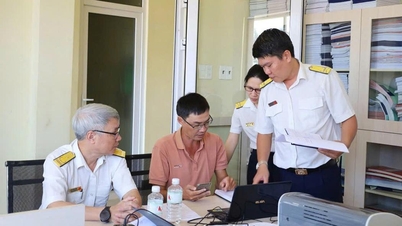






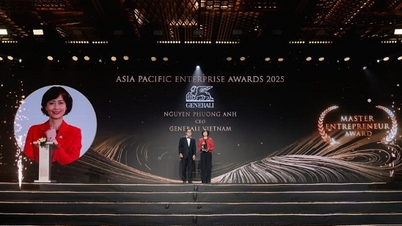

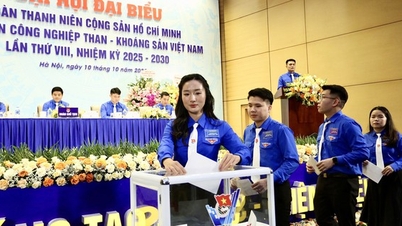
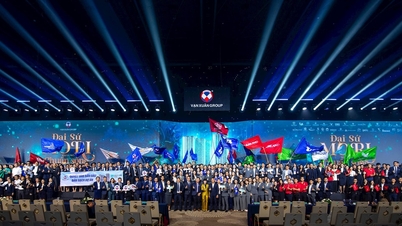

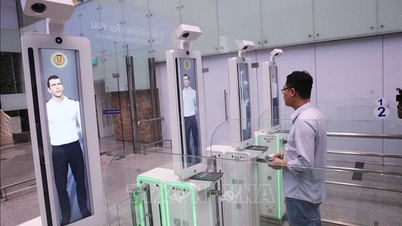





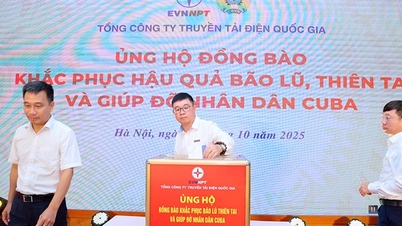






































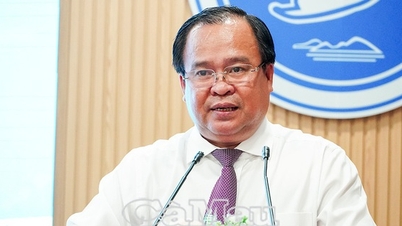

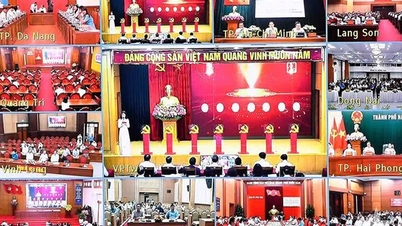




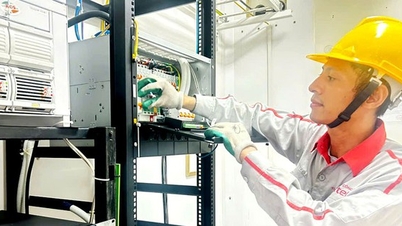
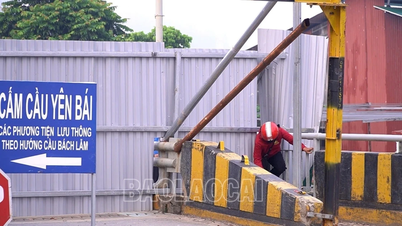



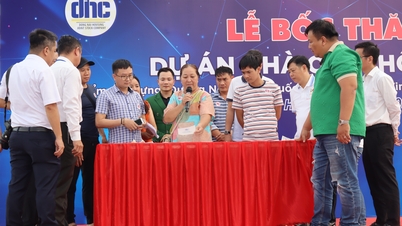


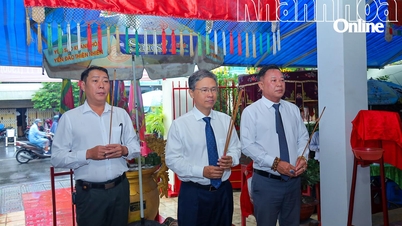
















Comment (0)